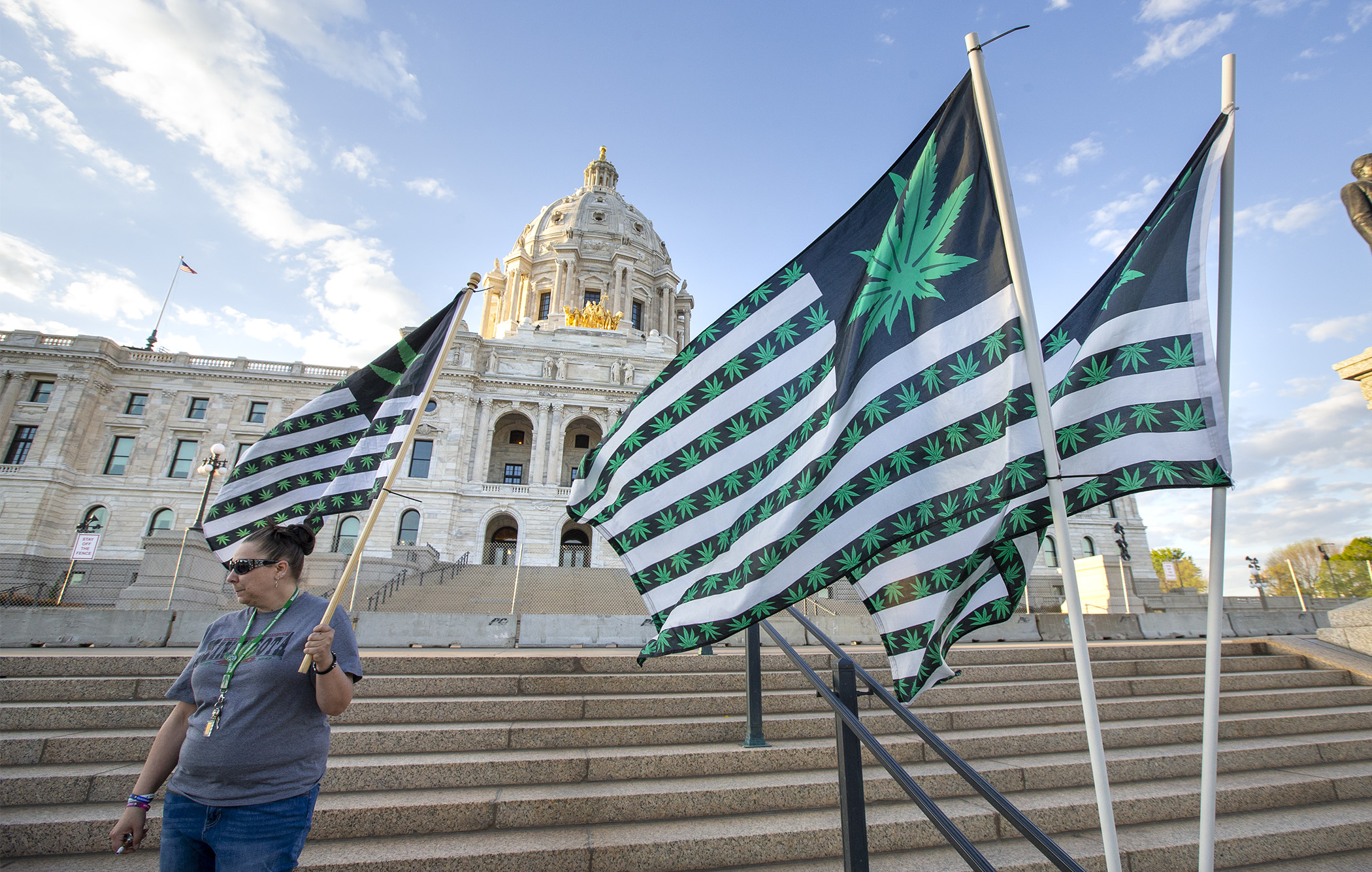Legalized recreational cannabis bill heads to House Floor

It’s far from a done deal, but recreational cannabis took an important step forward Monday to becoming legal in Minnesota.
The House Ways and Means Committee approved HF100, as amended, on a split-voice vote and sent it to the House Floor.
Rep. Zack Stephenson (DFL-Coon Rapids), who sponsors the bill, said the decades-long prohibition and criminalization of cannabis has not worked to make society safer and has had a devastating effect on minorities.
The bill would appropriate $73.38 million in the 2024-25 biennium to establish statewide and local structures to regulate and manage cannabis sales, fund prevention and addiction recovery programs, and provide grants to law enforcement and courts.
Stephenson said that because revenue from licensing fees and a cannabis sales tax of 8% on top of existing sales taxes would begin to come into the state’s coffers in 2026, no money would be appropriated beginning in fiscal year 2026.
“Over the long run, the bill is more than self-supporting,” he said.
An amendment to the bill would add several new appropriations, including $9 million in fiscal year 2025 to the Department of Health to fund grants for local health departments to develop educational materials on cannabis, including lower-potency hemp edibles, and outreach programs on prevention and safe use of recreational cannabis.
[MORE: View the fiscal impact; full 147-page fiscal note]
Another appropriation in the amendment would appropriate $15 million in the 2024-25 biennium, up from the $1 million in the bill’s previous version, to the Minnesota State Patrol for “drug recognition evaluator training.”
Stephenson said this extra funding is a recognition that unlike alcohol, there is no accurate roadside blood-level test to detect driving under the influence of cannabis, and peace officers will need training to accurately assess cannabis-impaired drivers.
Another $2.74 million in the 2024-25 biennium would fund a “statewide impaired driving coordinator” and support a pilot project to evaluate the efficacy of “oral fluid roadside testing.”
Republicans continue to express reservations about the bill, including the limited ability of local governments to tailor regulations and licensing fees to offset local costs they say would come with legalization, especially in local law enforcement and public health.
If local governments can’t raise revenue to address the social issues that will come with legalization, they will take a financial hit, said Rep. Peggy Scott (R-Andover). “All the state agencies in the bill … are well-funded, but the locals are left holding the bag.”
Rep. John Petersburg (R-Waseca) questioned whether there is any benefit to society for legalizing recreational cannabis. He said friends and relatives in other states with legal cannabis have witnessed many social- and health-related downsides.
“I think it’s just dangerous at this time,” he said.
What’s in the bill?
Introduced in January, the bill was reviewed and approved by 14 committees before coming to the House Ways and Means Committee. In its current version, it would permit a person age 21 or older to:
- possess up to 2 ounces of cannabis flower in a public place or 1.5 pounds in a person’s residence;
- possess or transport no more than 8 grams of adult-use cannabis concentrate;
- possess or transport edible products infused with up to 800 milligrams of THC;
- give away cannabis flower and cannabinoid products in an amount that is legal for a person to possess in public;
- use cannabis flower and cannabinoid products in private areas; and
- cultivate up to eight cannabis plants, of which four or fewer may be mature, flowering plants.
The bill would make significant changes in many parts of Minnesota law by:
- creating more than a dozen types of licenses for growing, selling, transporting and testing cannabis;
- creating an Office of Cannabis Management to regulate cannabis and take enforcement actions;
- taxing cannabis retail sales at 8%, in addition to any already imposed local or state taxes;
- creating and funding programs to combat cannabis abuse;
- creating grants to assist individuals entering the legal cannabis market;
- eliminating criminal penalties for cannabis possession; and
- expunging the criminal records of people previously convicted of low-level cannabis offenses.
Related Articles
Search Session Daily
Advanced Search OptionsPriority Dailies
Speaker Emerita Melissa Hortman, husband killed in attack
By HPIS Staff House Speaker Emerita Melissa Hortman (DFL-Brooklyn Park) and her husband, Mark, were fatally shot in their home early Saturday morning.
Gov. Tim Walz announced the news dur...
House Speaker Emerita Melissa Hortman (DFL-Brooklyn Park) and her husband, Mark, were fatally shot in their home early Saturday morning.
Gov. Tim Walz announced the news dur...
Lawmakers deliver budget bills to governor's desk in one-day special session
By Mike Cook About that talk of needing all 21 hours left in a legislative day to complete a special session?
House members were more than up to the challenge Monday. Beginning at 10 a.m...
About that talk of needing all 21 hours left in a legislative day to complete a special session?
House members were more than up to the challenge Monday. Beginning at 10 a.m...